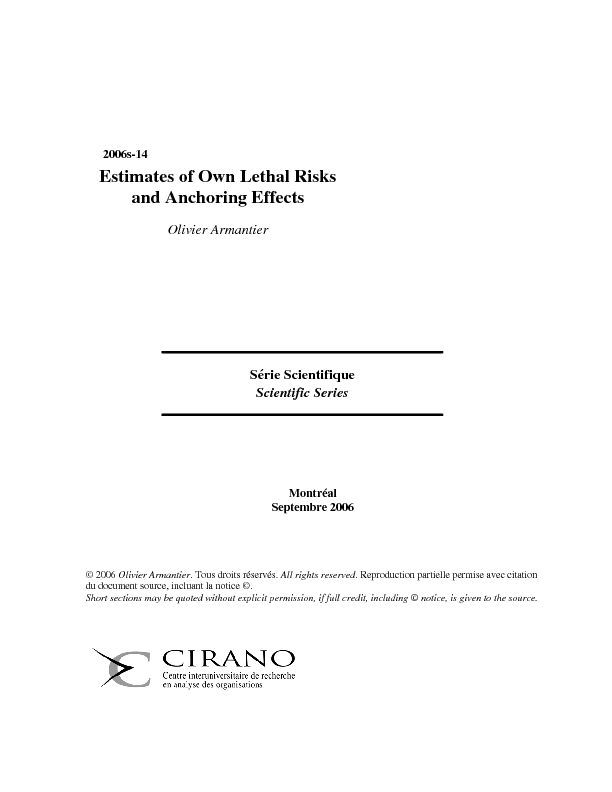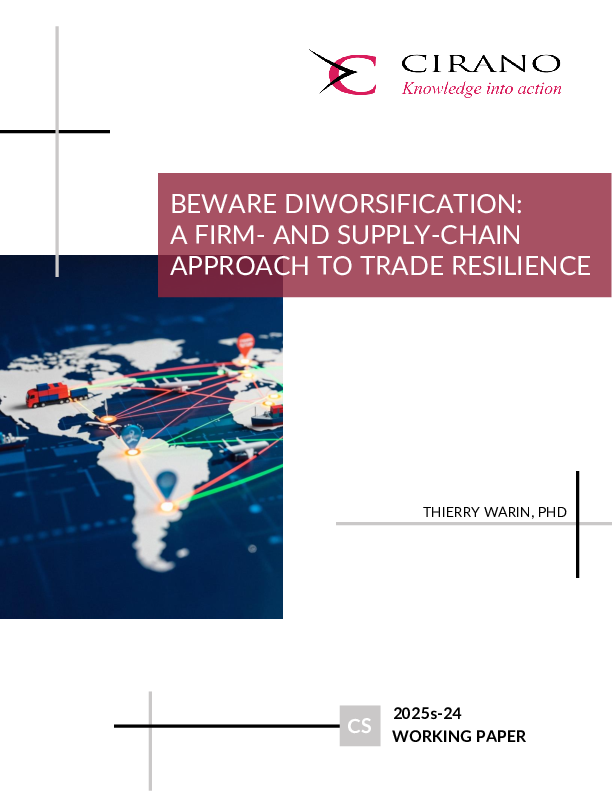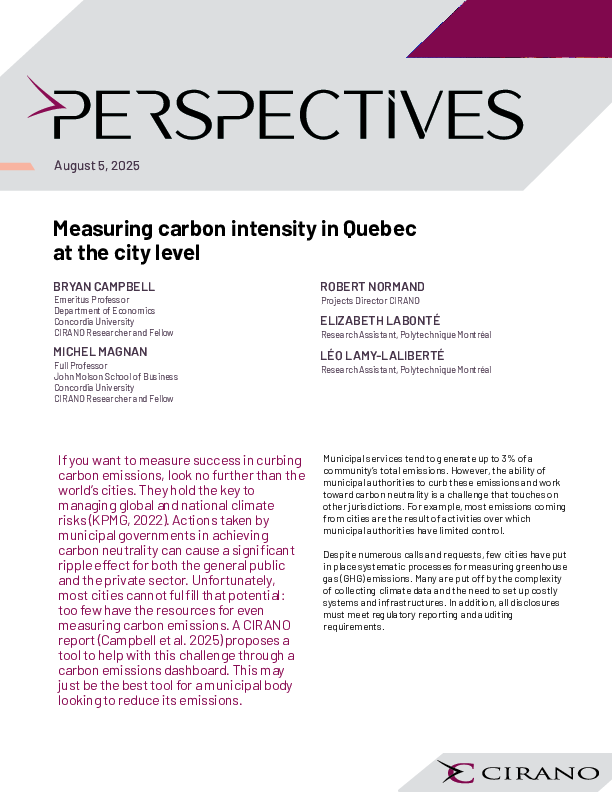Estimates of Own Lethal Risks and Anchoring Effects
The paper reports on an experiment testing whether agents perceive correctly the lethal risks they face personally. The results suggest that subjects exhibit comparable biases when making predictions for their own-age-cohort, or for the entire population (i.e. agents overestimate rare risks, and under-estimate common risks). The hypothesis that agents have better knowledge of their own risks, however, cannot be dismissed entirely, as responses in the own-age-cohort survey are more homogenous and better ordered. Finally, it is shown that administering surveys in succession can generate anchoring effects, which may explain why our conclusions differ markedly from a previous study.
[ - ]




